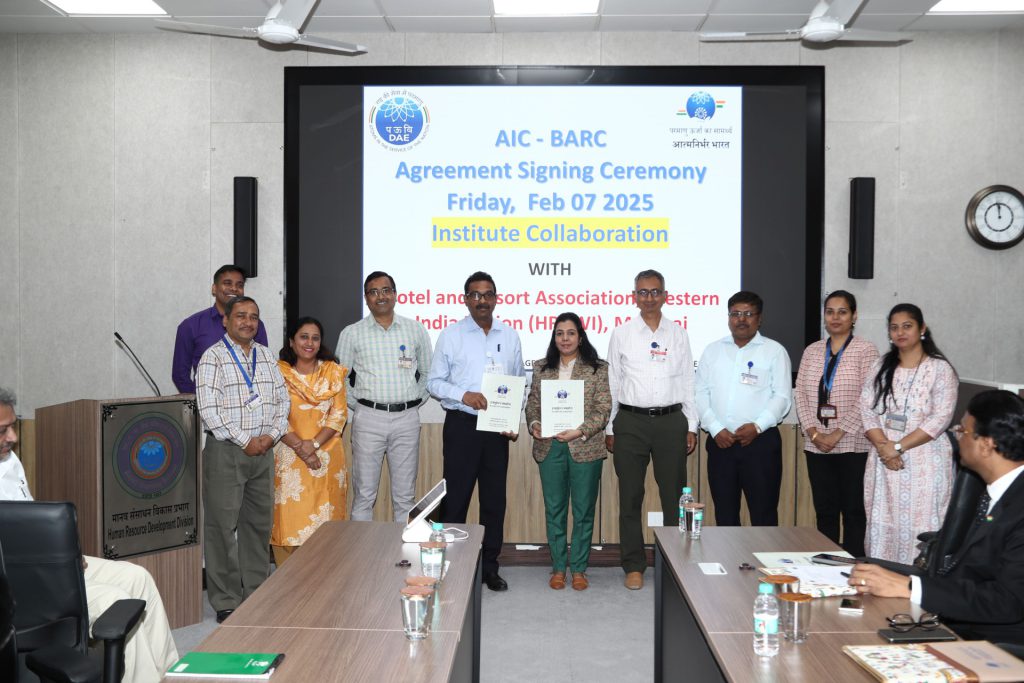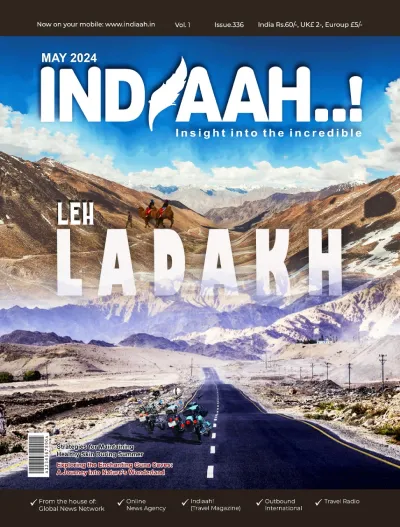
The Hotel and Restaurant Association of Western India (HRAWI) has signed a Memorandum of Understanding (MoU) with the Atal Incubation Centre – Bhabha Atomic Research Centre (AIC-BARC) to introduce advanced solid waste management technologies across member hotels and resorts. This collaboration aligns with the Government’s ‘Swachh Bharat Mission’ and aims to minimize environmental impact by promoting BARC-developed solutions such as Nisargruna, Shesha, and Solid Waste Composting. Through this partnership, HRAWI members will gain access to licensed agencies for the commissioning, installation, and maintenance of these innovative waste management systems. AIC-BARC, supported by AIM and NITI Aayog, will serve as a knowledge partner, providing technical consultations throughout the implementation process.
HRAWI Secretary General, Ms. Trupti Pawar, emphasized the importance of sustainable practices in the hospitality sector. “This partnership with AIC-BARC is a major step toward integrating advanced waste management solutions into routine operations. It will also support entrepreneurs, startups, and self-help groups by sharing best practices and fostering innovation. Our collaboration reinforces our commitment to responsible growth, helping India achieve its long-term sustainability goals while improving operational efficiency,” she stated.
The waste management technologies developed by BARC are designed to process varying amounts of wet waste generated by hospitality establishments. These systems follow a circular economy model by minimizing resource consumption, redesigning products for efficiency, and repurposing waste into biogas and organic manure. HRAWI spokesperson Mr. Pradeep Shetty highlighted the benefits of the initiative, stating, “By reducing waste at the source, these technologies help limit landfill use while also providing cost savings for businesses. This initiative promotes sustainability and allows hospitality establishments to integrate waste recycling into their daily operations.”
Key highlights of the partnership include promoting the adoption of BARC’s waste management technologies, reducing long-term waste management expenses, supporting the ‘Swachh Bharat’ initiative, and offering assistance from AIC-BARC for technology setup and maintenance. Additionally, the collaboration will facilitate partnerships with licensed service providers and support startups in the waste management sector.
HRAWI has been a strong advocate for sustainability, conducting seminars to educate members on green practices and aligning with the Mission LiFE (Lifestyle for Environment) movement. Looking ahead, Mr. Shetty underscored the role of sustainability in India’s tourism sector. “As we aim to welcome 100 million tourists by 2047 and build a USD 3 trillion hospitality economy, adopting circular economy principles and eco-friendly practices is essential. This initiative is a significant step toward achieving that vision,” he concluded.

